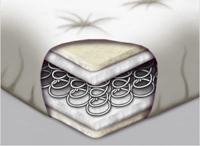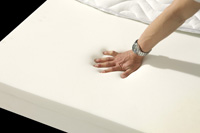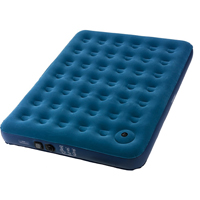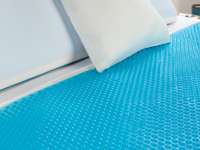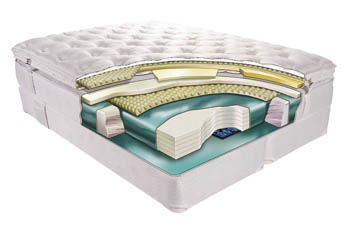
Any mattress that helps you sleep comfortably and wake up feeling refreshed, without pain and stiffness, is the best mattress for you. There is no single mattress that works for all people. You should choose the mattress that provides adequate support and meets your standards.
Which Mattress Is Right for You?
| Innerspring These are traditional steel coils in various configurations and are often the least expensive--and the most widely sold. Variations include special layers of cushioning, some with infused gel. Sealy, Serta, Simmons, and Spring Air are the top sellers. Pros:Changing positions tends to be easy. | |
| Memory foam Basically polyurethane with additional ingredients, memory foam has been a favorite of respondents to our surveys who suffer from pain. Pros:Traditional memory foam softens when you lie on it and soon molds to your body. It helps isolate you from movement on the other side of the bed. | |
| Inflatable air With this type, you inflate it to your desired firmness using a pump attached to the bed. Many include additional layers such as foam. Pros:Some also let you inflate individual halves to different firmnesses to suit each sleep partner. | |
| Gel This moldable, flexible substance most typically serves as a layer on another type of bed. Pros:It's claimed to help a mattress breathe better and feel cooler, especially for memory foam. | |
The construction determines the feeling
| | Most stores have a cutaway or cross-section display of at least some mattresses. Despite the claims, there is no best bed for everyone. Spend time finding the mattress that's most comfortable for you and supports you best. Here are the mattress features to consider. Ticking |
| Top padding This is usually polyurethane foam, with or without polyester batting. Polyester batting provides a soft feel and helps to dissipate perspiration. Coils Box spring Topper |
Here are some things to keep in mind when buying a new mattress:
1. Research online before going shopping.
2. Talk to your doctor. If you have a health condition, talk to your doctor or physical therapist about what he or she recommends.
3. Firm mattresses aren't always better for your back. Think twice before buying a hard or firm mattress.
4. Pillow tops aren't for everyone. Very light-weight people don't need big thick pillow top mattresses because they don't weigh enough to compress the foam to even touch the underlying coils/support system.
5. Adjustable beds are a great option, especially if you find you are more comfortable sitting in a recliner than lying down.
6. Ask about money-back guarantees. If you think you'll like a memory foam mattress but aren't quite sure, try the Tempurpedic brand as they typically offer a 30-day money-back guarantee.
Written by Nicolas Yang
